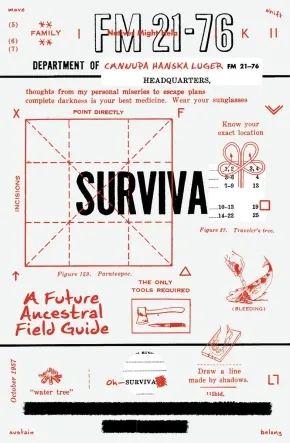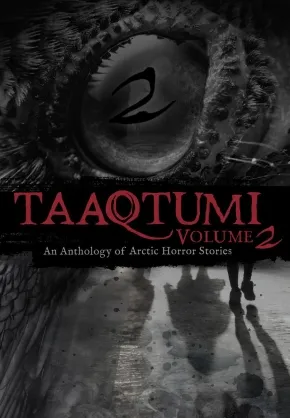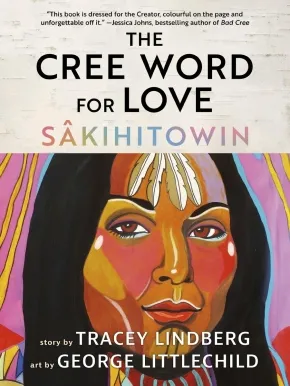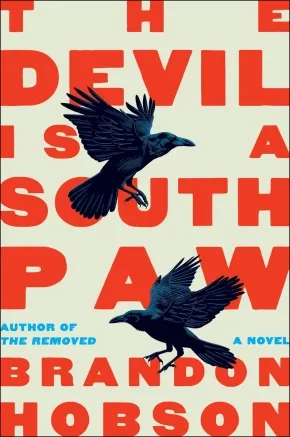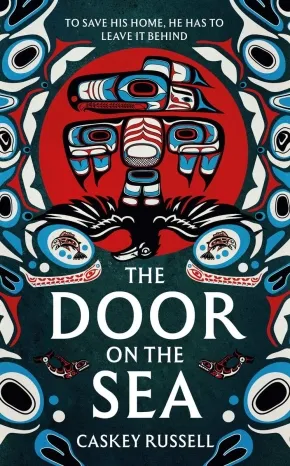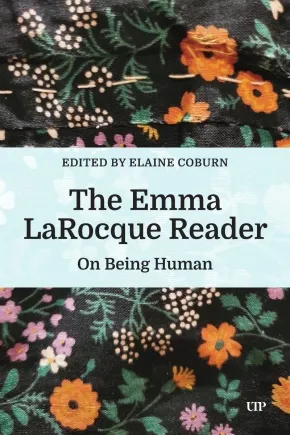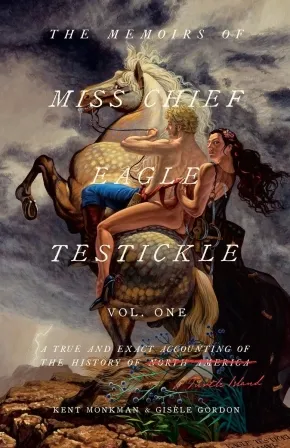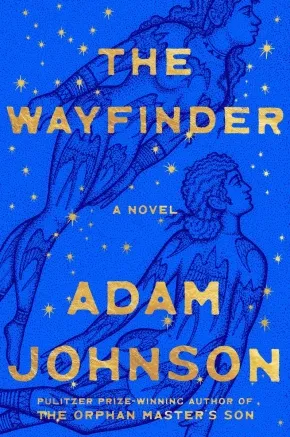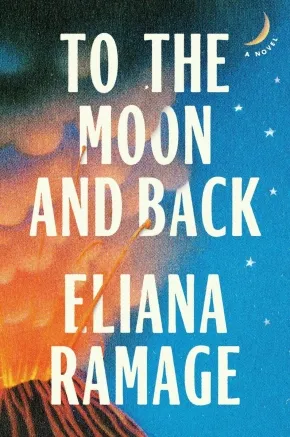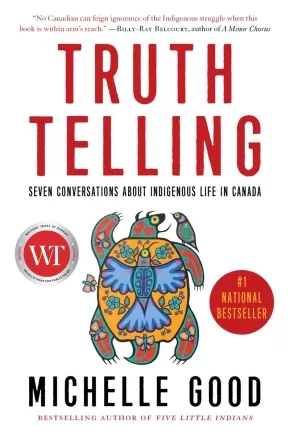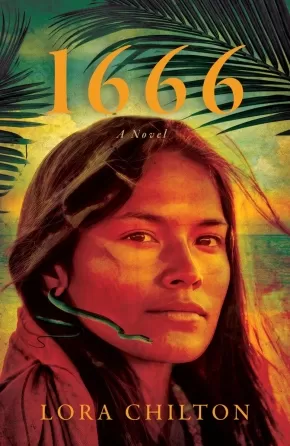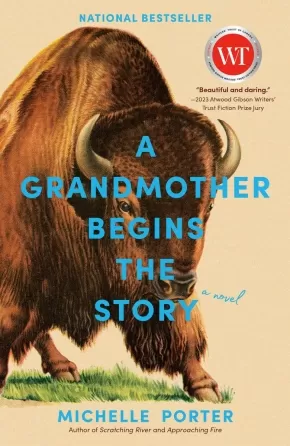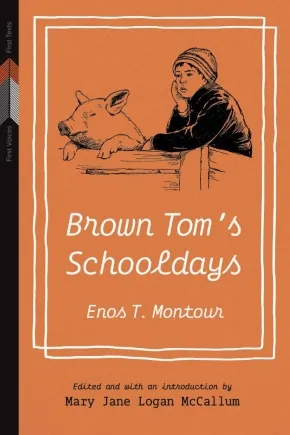Literary Studies
Synopsis:
An ambitious, world-envisioning work of Indigenous futurism.
Since 2015—through a proliferation of forms including sculpture, regalia, film, photography, poetry, painting, and installation—acclaimed multimedia artist Cannupa Hanska Luger has been weaving together strands of a new myth. Collectively referred to as Future Ancestral Technologies, this sprawling series of interrelated works seeks to reimagine Indigenous life and culture in a postcolonial world where space exploration has reduced and reconfigured the earth’s population.
Part graphic novel, part art book, SURVIVA: A Future Ancestral Field Guide offers readers a view beneath, beyond, and between the lines of Luger's ever-expanding artistic universe. In this ecstatically hybrid work, Luger transforms a 1970s military survival guide through poetic redaction, speculative fiction, and iterative line drawing—deftly surfacing and disrupting the colonial subconscious that haunts this vexed source text. An epic and timely meditation on planetary life in the midst of transformation, SURVIVA boldly presents an earth-based, demilitarized futuredream that foregrounds Indigenous knowledge as critical to humanity’s survival
SURVIVA is the first title from Aora Books, a publishing imprint dedicated to exploring transformational thought and culture that transcends borders, disciplines, and traditions. Rooted in an ethos of polyvocality and planetary consciousness, Aora publishes works that forge bold connections across time, place, ideas, and beings often seen as separate.
Reviews
"SURVIVA offers Indigenous wisdom for a shared future built on ancestral knowledge in radical relation. This is a survival guide like none other." —Candice Hopkins, curator of the Forge Project
"SURVIVA boldly reimagines our conceptions of time and history, challenging our collective narratives and pushing us to rethink the art of survival through a lens of transformation."—Hank Willis Thomas, artist and cofounder of For Freedoms
"Cannupa Hanska Luger has created a wondrous book of survivance, a story to carry in pocket and study at every opportunity. At once a dystopia (earth is near destroyed) and a postcolonial fantasy (the colonizers abandon the planet for good), SURVIVA is a work of artistic brilliance that draws our attention to the simultaneity of ruins and futures. Rich with dreampower and evocation, these pages illustrate the mysteries of space-time, the dissolution of boundaries, and the relational universe described by Indigenous quantum mechanics. Read carefully, SURVIVA has the power to bend time itself, lifting us from past and present into futures innumerable."—Philip J. Deloria, Leverett Saltonstall Professor of History at Harvard University and author of Playing Indian
Additional Information
162 pages | 5.44" x 8.31" | original line drawings & ecopoetic fragments - reminiscent of 1970s diy photocopy culture | Paperback
Synopsis:
This new collection of horror short fiction weaves together contemporary Arctic settings with ancient monsters and mysterious beings that have been said to stalk the tundra for centuries.
Featuring authors from across the Canadian Arctic, this new volume of Taaqtumi—an Inuktitut word that means “In the Dark”—reveals just how horrifying the dark can be.
Featuring new fiction from award-winning authors Aviaq Johnston, Rachel and Sean Qitsualik-Tinsley and Jamesie Fournier, as well as new voices in the genre, this collection is perfect for any horror lover.
Educator & Series Information
Includes stories from Indigenous authors across the Canadian Arctic.
This book is part of the Taaqtumi series.
Additional Information
184 pages | 6.00" x 9.00" | b&w illustrations | Paperback
Synopsis:
Bestselling author of Birdie, Tracey Lindberg, and renowned artist George Littlechild join together in a stunning collaboration of story and art to explore love in all its forms—romantic, familial, community and kin—in the Cree experience.
In The Cree Word for Love, author Tracey Lindberg and artist George Littlechild consider a teaching from an Elder that in their culture, the notion of love as constructed in Western society does not exist. Here, through original fiction and select iconic paintings, Lindberg and Littlechild respond.
Together they have created and curated this collaboration which travels, season by season, mirroring the four rounds in ceremony, through the themes of the love within a family, ties of kinship, desire for romantic love and connection, strength in the face of loss and violence, and importance of self-love, as well as, crucially, a deeper exploration of the meaning of “all my relations.”
Together, art and story inspire and move readers to recall our responsibilities to our human and more than human relations, to think about the obligation that is love, and to imagine what it could possibly mean to have no Cree word for love. The result is a powerful story about where we find connection, strength, and the many forms of what it means to live lovingly.
Additional Information
224 pages | 6.00" x 8.00" | 20 full-color photos of paintings | Hardcover
Synopsis:
A haunting, unforgettable novel of obsession, pride, and forgiveness, exploring the friendship and rivalry between two gifted boys in harrowing circumstances, from the acclaimed writer of The Removed.
Milton Muleborn has envied Matthew Echota, a talented Cherokee artist, ever since they were locked up together in a dangerous juvenile detention center in the late 1980s. Until Matthew escaped, that is.
A novel within a novel, we read here Milton’s dark, sometimes comic, and possibly unreliable account of the story of their childhood even as, years later, he remains jealous of Matthew’s extraordinary abilities and unlikely success. Milton reveals secrets about their friendship, their families, and their nightmarish, surreal, experience of imprisonment. In revisiting the past, he explores the echoing traumas of incarceration and pride.
Filled with Brandon Hobson’s swirling yet visceral writing, and punctuated with original artwork, The Devil Is a Southpaw is an ambitious, elegant, and propulsive novel in the spirit of Vladimir Nabokov and Gabriel García Márquez.
Reviews
"Hobson has never been more brilliant, more transcendent, more in touch with the beating human spirit, than he is in The Devil is a Southpaw. No other writer is so continuously reinventing the novel, weaving together Cherokee myth, rock and roll, the supernatural, and his own first published paintings. Perhaps his best novel yet, which is really saying something." — Deb Olin Unferth, author of Barn 8
“Brandon Hobson is a great contemporary American fiction writer—wily, funny, sly, sad, and vast. The Devil Is a Southpaw is a welcome addition to his very significant stack. It’s got a little Cervantes in it, a little Pink Floyd, and a lot of American tragedy. I bet you’ll love it, as I did.” — Rick Moody, author of Hotels of North America
"Hobson holds the reader’s attention with appealing surrealistic asides, such as the boys’ encounter with a doppelgänger of painter Salvador Dalí, who rhapsodizes over the band Duran Duran. There’s plenty of fun to be had with this cerebral novel." — Publishers Weekly
Additional Information
352 pages | 5.50" x 8.25" | 27 b/w illustrations | Hardcover
Synopsis:
An epic quest fantasy debut that is the Tlingit indigenous response to The Lord of the Rings
When Elān trapped a salmon-stealing raven in his cupboard, he never expected it would hold the key to saving his people from the shapeshifting Koosh invaders plaguing their shores. In exchange for its freedom, the raven offers a secret that can save Elān’s home: the Koosh have lost one of their most powerful weapons, and only the raven knows where it is.
Elān is tasked with captaining a canoe crewed by an unlikely team including a human bear-cousin, a massive wolf, and the endlessly vulgar raven. To retrieve the weapon, they will face stormy seas, cannibal giants and a changing world. But Elān is a storyteller, not a warrior.
As their world continues to fall to the Koosh, and alliances are challenged and broken, Elān must choose his role in his own epic story.
Reviews
“Goodness, it’s so exciting when epic fantasy tropes are done well, when they feel fresh and unexpected. I am always so thankful for writers who can breathe new life into the genre elements we love the most, and Russell has done exactly that here.” —Reactor
“Storytelling at its purest, harkening back to times spent around a fire to listen to a master of their craft weave an engrossing tale… A thoroughly enjoyable, unique, and long overdue voice in modern fantasy.” —Karin Lowachee, author of The Crowns of Ishia trilogy
Additional Information
400 pages | 5.56" x 8.68" | Hardcover
Synopsis:
Emma LaRocque was born in 1949 in Lac La Biche into a Cree-speaking Métis family. She grew up in a one-room, kerosene-lit log cabin built by her father. At the age of nine, she fought her parents to attend school, where she encountered English and the colonizer’s harmful stereotypes of Indigenous peoples. Confronting the contradictions of colonialism sparked her journey as a writer and scholar, as she sought to understand the dissonance between her identity and the world around her.
The Emma LaRocque Reader is a comprehensive collection of her most significant writings, poetry and prose, offering an intimate window into the mind of one of Canada’s foremost Indigenous scholars. Through her work, LaRocque provides profound insights into the intersections of colonialism, sexism, and racism in Canada, while also critically celebrating the beauty of her community and culture. In the afterword, she reflects on fifty years of challenging the colonial enterprise. A vital contribution to postcolonial literature, The Emma LaRocque Reader intertwines the personal and the political to explore what it means to be human, offering a powerful testament to Indigenous resistance, resilience, and vision.
This collection brings together the works of Métis scholar Emma LaRocque, offering a half-century of her poetry and prose, and shedding new light on Canada, colonialism, and Indigenous resistance.
Educator Information
Chapters
Foreword by Armand Ruffo
Preface by Elaine Coburn
Acknowledgments by Emma LaRocque
Acknowledgments of Permissions to Reprint
Introduction by Elaine Coburn
1975 A Personal Essay on Poverty (Excerpt from Defeathering the Indian)
1983 The Métis in English Canadian Literature
1988 On the Ethics of Publishing Historical Documents
1989 Racism Runs through Canadian Society
1990 Preface: Here Are Our Voices: Who Will Hear?
1990 Geese (poem)
1990 Nostalgia (poem)
1990 “Progress” (poem)
1990 The Red in Winter (poem)
1990 Incongruence (poem)
1990 Loneliness (poem)
1990 Beggar (poem)
1990 Tides, Towns, and Trains
1992 My Hometown, Northern Canada, South Africa (poem)
1993 Violence in Aboriginal Communities
1994 Long Way from Home (poem)
1996 The Colonization of a Native Woman Scholar
1996 When the Other Is Me: Native Writers Confronting Canadian Literature
2001 Native Identity and the Métis: Otehpayimsuak Peoples
2001 From the Land to the Classroom
2004 When the Wild West Is Me
2006 Sweeping (poem)
2006 Sources of Inspiration: The Birth of "For the Love of Words": Aboriginal Writers of Canada
2007 Métis and Feminist
2009 Reflections on Cultural Continuity through Aboriginal Women’s Writings
2010 Native Writers Reconstruct: Pushing Paradigms
2013 For the Love of Place – Not Just Any Place: Selected Métis Writings
2015 “Resist No Longer”: Reflections on Resistance Writing and Teaching
2016 Contemporary Métis Literature: Resistance, Roots, Innovation
2016 Colonialism Lived
2017 Powerlines (poem)
2022 Wehsakehcha, Comics, Shakespeare, and the Dictionary
2023 Afterword
Index
Additional Information
348 pages | 6.00" x 9.00" | Paperback
Synopsis:
Daring and vulnerable, this is the highly anticipated new collection from Griffin Poetry Prize winner Billy-Ray Belcourt.
In The Idea of An Entire Life, Belcourt delivers an intimate examination of twenty-first-century anguish, love, queerness, and political possibility. Through lyric verse, sonnets, fieldnotes, and fragments, the poems, sometimes heart-breaking, sometimes slyly humorous, are always finely crafted, putting to use the autobiographical and philosophical style that has come to define Belcourt’s body of work. By its close, the collection makes the urgent argument that we are each our own little statues of grief and awe.
Reviews
"To read Billy-Ray Belcourt’s The Idea of An Enitre Life is to experience genre as a place between landscapes, but also beyond them: horizon as 'line break,' infrastructure as 'wound,' 'an image of a forest someone else/was supposed to know by heart.' These poems are achingly beautiful. Belcourt writes what’s already broken, breaking in real-time, 'in order to repair it.' How this new form might arrive, 'miraculously' but also diligently, an act of recuperation and courage that’s on-going, 'meandering' but also (always) 'incomplete,' becomes what happens when we read."—Bhanu Kapil
Additional Information
96 pages | 5.00" x 7.50" | Hardcover
Synopsis:
From global art superstar Kent Monkman and his long-time collaborator Gisèle Gordon, a transformational work of true stories and imagined history that will remake readers’ understanding of the land called North America.
For decades, the singular and provocative paintings by Cree artist Kent Monkman have featured a recurring character—an alter ego of sorts, a shape-shifting, time-travelling elemental being named Miss Chief Eagle Testickle. Though we have glimpsed her across the years in films and on countless canvases, it is finally time to hear her story, in her own words. And, in doing so, to hear the whole history of Turtle Island anew. The Memoirs of Miss Chief Eagle Testickle: A True and Exact Accounting of the History of Turtle Island is a genre-demolishing work of genius, the imagined history of a legendary figure through which profound truths emerge—a deeply Cree and gloriously queer understanding of our shared world, its past, its present, and its possibilities.
Volume One, which covers the period from the creation of the universe to the confederation of Canada, follows Miss Chief as she moves through time, from a complex lived experience of Cree cosmology to the arrival of European settlers, many of whom will be familiar to students of history. An open-hearted being, she tries to live among those settlers, and guide them to a deeper understanding of the interconnectedness of all beings and the world itself. As their numbers grow, though, so does conflict, and Miss Chief begins to understand that the challenges posed by the hordes of newly arrived Europeans will mean ever greater danger for her, her people, and, by extension, all of the world she cherishes.
Blending history, fiction, and memoir in bold new ways, The Memoirs of Miss Chief Eagle Testickle are unlike anything published before. And in their power to reshape our shared understanding, they promise to change the way we see everything that lies ahead.
Reviews
"Long a persona stalking the paintings of provocative Cree artist Kent Monkman, Miss Chief Eagle Testickle steps off the canvas to tell her own story—and that of the Indigenous peoples of Turtle Island—in a two volume collaboration with Gisèle Gordon. Lavishly illustrated with Monkman’s paintings, The Memoirs of Miss Chief Eagle Testickle is at once (and seamlessly) a unique story of an even more unique deity, an exposition of nêhiyaw (Cree) beliefs and a primer in nêhiyawêwin (Cree Language), and a deeply researched history of contact, colonization, and resurgence. A full-blown remediation of the politically-charged and erotic world of Monkman’s paintings, these books educate, inspire, entertain, and leave the reader breathless."—Steve Collis, 2024 VMI Betsy Warland Between Genres Award judge
Additional Information
264 pages | 6.51" x 9.99"" | Full-colour art throughout | Paperback
Synopsis:
A historical epic about a girl from a remote Tongan island who becomes her people's queen.
Talking corpses, poetic parrots, and a fan that wafts the breath of life—this is the world young Kōrero finds herself thrust into when a mysterious visitor lands on her island, a place so remote its inhabitants have forgotten the word for stranger. Her people are desperate and on the brink of starvation, and the wayward stranger offers them an impossible choice: they can remain in the only home they’ve ever known and await the uncertainty to come, or Kōrero can join him and venture into unfamiliar waters, guided by only the night sky and his assurance of a bountiful future in the Kingdom of Tonga. What Kōrero and her people don’t know is that the promised refuge is no utopia—instead, Tonga is an empire at war and on the verge of collapse, a place where brains are regularly liberated from skulls and souls get trapped in coconuts with some frequency.
The perils of Tonga are compounded by a royal feud: loyalties are shifting, graves are being opened, and everyone lives in fear of a jellyfish tattoo. Here, survival can rest on a perfectly performed dance or the acceptance of a cup of kava. Together, the stranger and Kōrero embark upon an epic voyage—one that will deliver them either to salvation or to the depths of the Pacific.
Evoking the grandeur of Wolf Hall and the splendor of Shōgun, the Pulitzer Prize–winning novelist Adam Johnson conjures oral history, restores the natural world, and locates what’s best in humanity. Toweringly ambitious and breathtakingly immersive, The Wayfinder is an instant, timeless classic.
Reviews
“A powerful and original epic . . . Deadly politics, tragic romance and dangerous sea journeys keep the drama at a spirited boil.”—The New York Times
“[An] epic-scale historical adventure from Pulitzer Prize winner Adam Johnson . . . Johnson paints a rich tale of nature, politics, and tradition . . . It's a unique, spellbinding saga that drew us into an elaborate world.”—Apple's Best of the Month
“Expansive in scope, historically detailed, and totally enthralling . . . Johnson's monumental research into the history, legacy, and imprint of the Polynesian culture is evident in the meticulous detail of his narrative—which is about much more than his characters, whose vibrancy demands acknowledgement, and his gorgeous landscape descriptions . . . Part bildungsroman, part historical exploration, this novel is a study of the many islands in the South Pacific, their power struggles, abuses of power, and the perseverance to survive.”—Booklist (starred review)
"Epic historical fiction with a twist of magical realism, The Wayfinder follows a Tongan royal family facing political upheaval and a community on a distant island facing starvation. It is a dual timeline with multiple viewpoints that makes you feel totally immersed in the story." — Goodreads Review, Shannon
Additional Information
736 pages | 6.00" x 9.00" | Hardcover
Synopsis:
One young woman’s relentless quest to become the first Cherokee astronaut will irrevocably alter the fates of the people she loves most in this tour de force of a debut about ambition, belonging, and family.
My mother took my sister and me, and she drove through the night to a place she felt a claim to, a place on earth she thought we might be safe. I stopped asking questions. I picked little glass pieces from my sister’s hair. I watched the moon.
Steph Harper is on the run. When she was five, her mother fled an abusive husband—with Steph and her younger sister in tow—to Cherokee Nation, where she hoped they might finally belong. In response, Steph sets her sights as far away from Oklahoma as she can get, vowing that she will let nothing get in the way of pursuing the rigorous physical and academic training she knows she will need to be accepted by NASA, and ultimately, to go to the moon.
Spanning three decades and several continents, To the Moon and Back encompasses Steph’s turbulent journey, along with the multifaceted and intertwined lives of the three women closest to her: her sister Kayla, an artist who goes on to become an Indigenous social media influencer, and whose determination to appear good takes her life to unexpected places; Steph’s college girlfriend Della Owens, who strives to reclaim her identity as an adult after being removed from her Cherokee family through a challenge to the Indian Child Welfare Act; and Hannah, Steph and Kayla’s mother, who has held up her family’s tribal history as a beacon of inspiration to her children, all the while keeping her own past a secret.
In Steph’s certainty that only her ambition can save her, she will stretch her bonds with each of these women to the point of breaking, at once betraying their love and generosity, and forcing them to reconsider their own deepest desires in her shadow. Told through an intricately woven tapestry of narrative, To the Moon and Back is an astounding and expansive novel of mothers and daughters, love and sacrifice, alienation and heartbreak, terror and wonder. At its core, it is the story of the extraordinary lengths to which one woman will go to find space for herself.
Reviews
“A story of decisions; right, wrong and everything in between, To the Moon and Back explores love and ambition and all its complicated messiness. With characters so perfectly rendered that you’ll want to hug them or give them a shake, Eliana Rampage explores what it means to belong in this immersive and exciting debut.” — Amanda Peters, author of The Berry Pickers (winner of the Carnegie Medal for Excellence)
“A soaring masterpiece that mixes the terror, care, betrayal, and death-defying love of family with deliciously abject lesbian drama and the beautifully self-destructive doggedness of possessing a singular dream. Every character in this novel will stay with you forever. I love this book.” —Casey Plett, award-winning author of A Dream of a Woma—
“A John Irving-esque tragicomic saga… This author is as ambitious as her protagonist: There are three novels worth of material here, all good. The moon or bust!” —Kirkus Review (starred review)
Additional Information
448 pages | 6.00" x 9.00" | Paperback
Synopsis:
A bold, provocative collection of essays exploring the historical and contemporary Indigenous experience in Canada.
With authority and insight, Truth Telling examines a wide range of Indigenous issues framed by Michelle Good’s personal experience and knowledge.
From racism, broken treaties, and cultural pillaging, to the value of Indigenous lives and the importance of Indigenous literature, this collection reveals facts about Indigenous life in Canada that are both devastating and enlightening. Truth Telling also demonstrates the myths underlying Canadian history and the human cost of colonialism, showing how it continues to underpin modern social institutions in Canada.
Passionate and uncompromising, Michelle Good affirms that meaningful and substantive reconciliation hinges on recognition of Indigenous self-determination, the return of lands, and a just redistribution of the wealth that has been taken from those lands without regard for Indigenous peoples.
Truth Telling is essential reading for those looking to acknowledge the past and understand the way forward.
Reviews
“With blistering clarity, Michelle Good exposes the contradictions at the heart of Canada, but also imagines beyond them, setting out a specific vision for an Indigenous future governed by us. Good’s essays, woven with personal testimony, are deeply researched and traverse great swaths of history and policy; they are also very rousing and moving. No Canadian can feign ignorance of the Indigenous struggle when this book is within arm’s reach.” — Billy-Ray Belcourt, author of A Minor Chorus
"Good reminds us what the truth in Truth and Reconciliation actually requires of all of us: Indigenous peoples and Canadians. Addressing storytelling and historical myth-making, this book would have changed my nineteen-year-old world had it been available and rendered normative for my teachers. Good’s work is formidable, elemental and reminiscent of Cardinal’s Unjust Society. This work, should be required reading for every Canadian. Smart, generous and insightful. 'There is no such thing as Crown Land. It is all Indigenous land.' Good writes. This truth resonates. Serves notice: it is time." — Dr. Tracey Lindberg, Law Professor, author of Birdie
“Truth Telling is at once heartfelt, instructive, and authentic, expertly exploring the key issues that have shaped the Indigenous reality in Canada.… This collection is an indispensable resource.” — Waubgeshig Rice, author of Moon of the Crusted Snow
“As Canadians search for a national approach to reconciliation... this book reminds us of how we arrived at this moment.…[and] is the kind of reference that will help us navigate our fraught journey.” — Dr. Eldon Yellowhorn, Professor of Indigenous Studies, Simon Fraser University
“Truth Telling is a powerful, urgent, and necessary book that gets to the heart of true reconciliation and maps a course for achieving it. Bridging personal stories and lived experiences with sharp historical analysis, Michelle Good’s writing is both beautiful and heartbreaking. Honest, forthright, and powerful, Truth Telling offers insights and analysis that every policymaker and politician—indeed, any person who calls Canada “home”— can and must read. Urgently.” — 2023 Balsillie Prize for Public Policy Jury
Educator Information
Truth Telling is a collection of essays about the contemporary Indigenous experience in Canada.
Additional Information
232 pages | 5.00" x 7.50" | Paperback
Synopsis:
A Fictional Recounting of the Survival Story of Patawomeck Tribe of Virginia
The story has been remembered within the Patawomeck tribe for generations, but is largely unknown outside of the tribe until now. Author Lora Chilton, a tribal member through the lineage of her father, has created this powerful fictional retelling.
The story follows three Indigenous Patawomeck women who lived through the decimation of their tribe by land hungry colonists in the summer of 1666, the massacre of their men, the harrowing march south where they and their children were sold and transported to Barbados via slave ship, and, eventually, their brave escape back to Virginia. It is because of these women that the tribe is in existence to this day.
This work of historical fiction is based on oral tradition, interviews with tribal elders, written colonial records and extensive research by the author, including study of the language. The book uses Indigenous names for the characters and some Patawomeck words to honor the culture and heritage that was erased when European colonization of the Americans began in the 16th century.
Reviews
"Packed with Indigenous culture and customs and sprinkled with tribal terminology, the narrative is vivid, magnetic, and chilling. The author is herself a Patawomeck descendant, and she’s combined scant available written records with tribal oral history to inform her creation of two emotionally powerful, vibrant female protagonists….plenty of action, tears, cheers, and historical detail work to keep the pages turning. A disturbing, absorbing, and valuable addition to the literature of cruelty inflicted upon Indigenous peoples."—Kirkus Reviews
“Focusing on the experiences of three Patawomeck women in the latter half of the seventeenth century, Chilton, in 1666 : A Novel, draws on contemporary scholarship regarding Patawomeck and Virginia Algonquian history, culture, and language to develop her characters and add depth to their stories. It is refreshing to read a story about Virginia Indian women in the seventeenth century that avoids the glamorized, sexualized, and racialized Pocahontas mythology and instead centers on the experiences of those everyday people who may not have been so well-known to colonizers but are the true ancestors of most Virginia Indians…. A fast-paced novel that takes the reader through numerous Atlantic landscapes from the traditional Patawomeck homelands along Potomac Creek, to Barbados, to New York, 1666 illustrates the interconnectedness of the early Modern world and its people." —Dr. Brad Hatch, Patawomeck Tribal Historian and Tribal Council Member
"In this debut novel by Lora Chilton, 1666: A Novel, we are introduced to a history based account of two brave Indigenous women of the Patawomeck tribe, who are abducted from their native Virginia home in 1666 and enslaved under the brutal 'Master' and 'Mistress' of the plantations in Barbados. A page-turning marvel of a historical novel! Otherwise, the shameful erasure of the Patawomeck would have been maintained." —Diana Y. Paul, author of Things Unsaid
Additional Information
224 pages | 5.32" x 8.46" | Paperback
Synopsis:
Five generations of Métis women argue, dance, struggle, laugh, love, and tell the stories that will sing their family, and perhaps the land itself, into healing in this brilliantly original debut novel.
Carter is a young mother, recently separated. She is curious, angry, and on a quest to find out what the heritage she only learned of in her teens truly means.
Allie is trying to make up for the lost years with her first born, and to protect Carter from the hurt she herself suffered from her own mother.
Lucie wants the granddaughter she's never met to help her join her ancestors in the Afterlife.
Geneviève is determined to conquer her demons before the fire inside burns her up, with the help of the sister she lost but has never been without.
And Mamé, in the Afterlife, knows that all their stories began with her; she must find a way to loose herself from the last threads that keep her tethered to the living, just as they must find their own paths forward.
This extraordinary novel, told by a chorus of vividly realized, funny, wise, confused, struggling characters—including descendants of the bison that once freely roamed the land—heralds the arrival of a stunning new voice in literary fiction.
Additional Information
336 pages | 5.18" x 8.00" | Paperback
Synopsis:
In this collection, Shane skillfully takes the readers on a trek through deserts of loneliness, labyrinths of loss, and meadows of healing. The landscapes of our emotions range from the perilous to the serene, and these poems become a companion, a confidant, a source of solace, and a survival guide for the reader.
Shane's unique voice weaves humor and storytelling into his verses. With levity as a setup for power, each poem promises to take you on a zipline of emotions, leaving you both laughing and reflecting on life's miracles. While the freefall through our emotions may at times feel like a hazard, Shane creates a place to land safely without having to sacrifice the impact created by their velocity. These works are flint and tinder, wrestling as a tag team against the cold and dark we sometimes find ourselves lost in.
The works contained within do not tell us where to dig for the buried treasure of our hearts… they remind us that the treasure does in fact exist, and they lay bare what is amazing about what our hearts can endure.
Additional Information
118 pages | 6.00" x 9.00" | Paperback
Synopsis:
Residential school life through the eyes of a child.
Enos Montour's Brown Tom's Schooldays, self-published in 1985, tells the story of a young boy's life at residential school. Drawn from Montour's first-hand experiences at Mount Elgin Indian Residential School between 1910 and 1915, the book is an ironic play on "the school novel," namely 1857's Tom Brown's Schooldays by Thomas Hughes.
An accomplished literary text and uncommon chronicle of federal Indian schooling in the early twentieth century, Brown Tom's Schooldays positions Brown Tom and his schoolmates as citizens of three worlds: the reserve, the "white man's world," and the school in between. It follows Tom leaving his family home, making friends, witnessing ill health and death, and enduring constant hunger.
Born at Six Nations of the Grand River in 1899, Montour earned degrees in Arts and Divinity at McGill University and served as a United Church minister for more than thirty years, honing his writing in newspapers and magazines and publishing two books of family history. Brown Tom's Schooldays reflects Montour's intelligence and skill as well as his love of history, parody, and literature.
This critical edition includes a foreword by the book's original editor, Elizabeth Graham, and an afterword by Montour's granddaughters, Mary Anderson and Margaret McKenzie. In her introduction, historian Mary Jane Logan McCallum documents Montour's life and work, details Brown Tom's Schooldays's publication history, and offers further insight into the operations of Mount Elgin. Entertaining and emotionally riveting, Montour's book opens a unique window into a key period in Canada's residential school history.
Reviews
"A fantastic read. People need more books like this, which are directly related to the TRC but are also a testament to the strength and creativity of Indigenous literature." — Crystal Fraser, University of Alberta
"Brown Tom's Schooldays is a literary artifact from the residential school era. In this fictionalized coming of age account, Enos Montour captures the youthful hopes, dreams, and disappointments of his real life upbringing at Mount Elgin, one of Canada's earliest and longest running residential schools. Unique in style, tone, and perspective, Schooldays is an important read for anyone interested in understanding the residential school system and for all of us who call the lower Great Lakes home." — Thomas Peace, Huron at Western University
Educator Information
This book is part of the First Voices, First Texts series.
Table of Contents
Foreword: On A Personal Note, The Making of Brown Tom’s Schooldays, 1982–1984 by Elizabeth Graham
Introduction: Enos Montour, Brown Tom, and “Ontario Indian” Literature by Mary Jane Logan McCallum
Brown Tom’s Schooldays by Enos Montour
Chapter 1: Salad Days
Chapter 2: Brown Tom Arrives
Chapter 3: Brown Tom's Three Worlds
Chapter 4: The Milling Herd
Chapter 5: Loaf 'n' Lard
Chapter 6: Brown Tom Makes a Deal
Chapter 7: Too Big for Santa Claus
Chapter 8: Brown Tom's Happy Days
Chapter 9: Trial By Fire
Chapter 10: Brown Tom "Has It Bad"
Chapter 11: Brown Tom Gets Religion
Chapter 12: The Roar of Mighty Waters
Chapter 13: Happy Hunting Ground for Noah
Chapter 14: War Clouds Over Mt. Elgin
Chapter 15: Brown Tom "Arrives"
Afterword by Mary Anderson and Margaret McKenzie
Appendix 1: Glossary of Idioms and References in Brown Tom’s Schooldays
Appendix 2: Bibliography of Works by Enos Montour
Endnotes
Bibliography
Additional Information
216 pages | 5.50" x 8.50" | 20 b&w illustrations, 3 maps | Paperback

